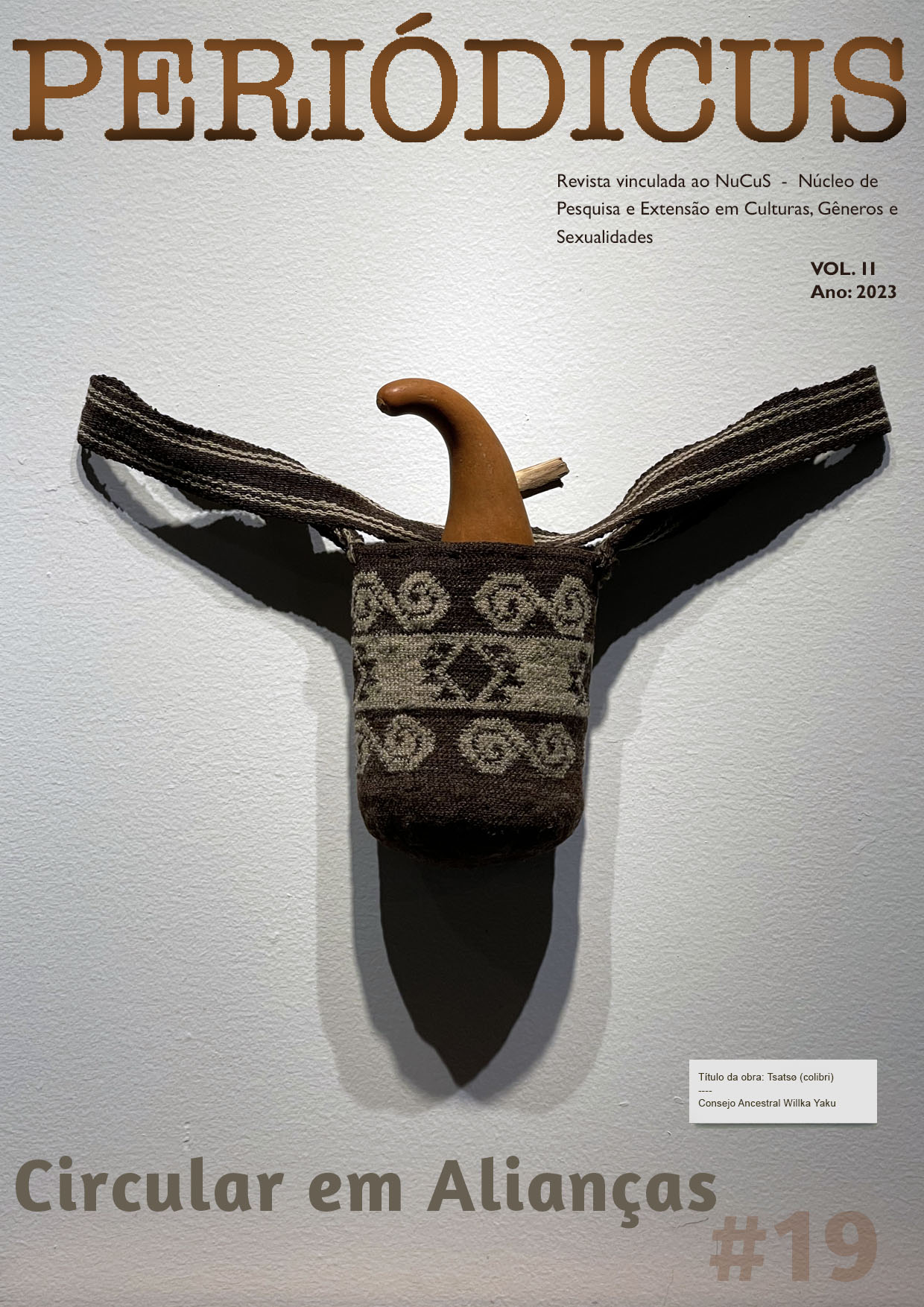Uma intervenção psicologicamente ética sobre o sujeito aderente a movimento de pureza sexual
DOI:
https://doi.org/10.9771/peri.v2i19.49613Resumo
Este trabalho analisa a ética acerca da intervenção da psicóloga na angústia culposa do sujeito sobre a própria libido resultante de participação em movimento evangélico de pureza sexual. O seu embasamento teórico envolve: um resumo sócio-histórico da castidade dentro do cristianismo; uma netnografia que engloba desabafos e relatos compartilhados dentro de comunidades e espaços virtuais evangélicos sobre algumas das modalidades de angústias e sofrimentos atrelados à participação nesse tipo de movimento; e uma análise do código de ética brasileiro da psicologia acerca da questão religiosa. O objetivo é compreender como a psicóloga pode intervir eticamente sobre o sofrimento desse sujeito sem (necessariamente) afastá-lo da sua religião. O resultado almejado é o desenvolvimento de metodologias psicologicamente em consonância com o código de ética da categoria que permitam ajudar esse sujeito a lidar positivamente com a sua própria sexualidade.
Downloads
Downloads
Publicado
Como Citar
Edição
Seção
Licença
Copyright (c) 2023 Saulo Albert

Este trabalho está licenciado sob uma licença Creative Commons Attribution-NonCommercial 4.0 International License.
Autores que publicam nesta revista concordam com os seguintes termos:
Autores mantêm os direitos autorais e concedem à revista o direito de primeira publicação, com o trabalho simultaneamente licenciado sob Licença Creative Commons Attribution Noncommercial que permite o compartilhamento do trabalho com reconhecimento da autoria e publicação inicial nesta revista, sendo vedado o uso com fins comerciais.
Autores têm autorização para assumir contratos adicionais separadamente, para distribuição não-exclusiva da versão do trabalho publicada nesta revista (ex.: publicar em repositório institucional ou como capítulo de livro), com reconhecimento de autoria e publicação inicial nesta revista.
Autores têm permissão e são estimulados a publicar e distribuir seu trabalho online (ex.: em repositórios institucionais ou na sua página pessoal) a qualquer ponto antes ou durante o processo editorial, já que isso pode gerar alterações produtivas, bem como aumentar o impacto e a citação do trabalho publicado (Veja O Efeito do Acesso Livre).








